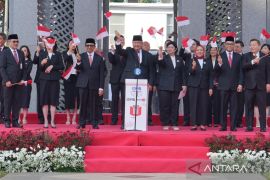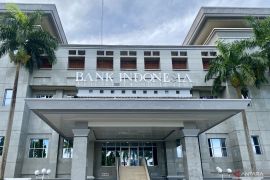"Banks should respond it soon and lower the rates of their commercial interests so that the real sector would expand," economic observer Ryan Kiryanto said here on Thursday.
Ryan said that the central bank`s policy to cut its rate by 50 basis points was an aggressive decision and was beyond the predictions of many who had expected that the cut would be at 25 basis points.
Seen from the inflation point of view, the inflation was relatively low namely below 5 percent and projection for 2012 was to be kept at about 5 percent.
"BI also observed the national macroeconomic situation which remained to be well maintained, even if the European and United States economic crisis is still a threat," the economic observer said.
He said that BI was convinced that the lowering of its rate would not put pressure on the rupiah currency because the central banks of other countries also did the same thing.
Bank Indonesia (the central bank/BI) decided on Thursday to cut its benchmark interest rate by 50 basis points to 6 percent in line with expected low inflationary pressure ahead.
The decision to cut the key rate known as BI Rate was also part of the efforts to improve short-, medium- and, long-term interest structure, Bank Indonesia Governor Darmin Nasution said on Thursday following a meeting of the central bank`s board of governors.
The cut was also intended to ease the impact of worsening global economic prospects on the Indonesian economy, he said.
He said developed nations` production and consumption continued to grow at a slow pace while the global financial market remained volatile although it rebounded earlier.
On the other hand, the domestic financial market had become increasingly stable, coupled with positive market sentiment thanks to the policies taken by Bank Indonesia and the government, he said.
(Uu.A014/HAJM/H-YH)
Editor: Priyambodo RH
Copyright © ANTARA 2011











